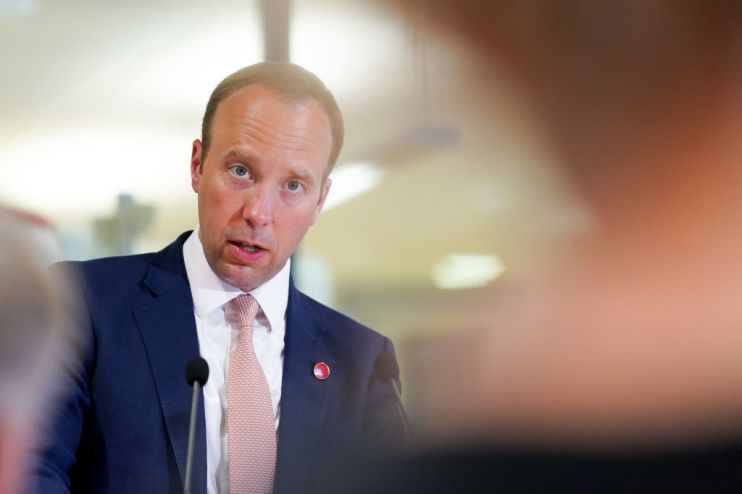Matt Hancock was stung by his own Covid sex bans but we should be wary of a world watching our every move

Matt Hancock’s resignation over the weekend shows it just takes embarrassing photos to bring down a “hopeless” minister in Britain today. The real public interest story of Gina Coladangelo’s appointment last year was broken by The Times with barely a murmur. The people behind the cameras weren’t looking for corruption, they were looking for “kompromat.” And ironically, it was Hancock’s own law-making that made the clinch front page news.
Restrictive lockdown rules were inevitable to protect lives. But other countries in Europe found ways to limit social interaction to stop the virus without effectively criminalising sex between consenting adults. If Matt Hancock were French, it would have been the whiff of political corruption, not the kiss that might have sparked interest from the police. But in Britain, lockdown laws that effectively banned intimacy indoors for millions of people made Matt Hancock’s private life a public interest story.
The Metropolitan police have said they would not be looking into potential breaches of the rules as they would be “retrospective.” And they are right to resist calls to investigate allegations about consensual intimacy in private.
Last week, Alan Turing, the WWII codebreaker appeared on the new £50. This should serve as a reminder of the devastating consequences of the national tendency to criminalise sex. Turing died two years after being convicted of “gross indecency” for loving another man. Now recognised as a national hero, Turing and tens of thousands of others were granted an automatic pardon in 2017 as the government recognised how inhumane the laws had been.
And prosecutions based on inhumane laws that disproportionately restrict our rights to private life violate human rights law. Sajid Javid has announced that the lifting of all lockdown regulations next month will be irreversible. Perhaps the police, like many others, are hoping that this really is the end of the matter. Whether that turns out to be true, the Government should make clear that it should not have effectively banned intimacy and that, no matter what the pandemic may throw at us, they will never do it again.
Clearly the lockdown laws cannot compare to the horrors of criminalisation of same sex intimacy. But, as Hancock’s case shows, they do raise issues that go beyond the private lives of the people concerned. When homosexuality was illegal, gay men were considered a security risk. Legislating to ban adult consensual intimacy is never a good idea. It doesn’t stop it. But it criminalises people for their humanity. And it opens those in the public eye to humiliation and potential blackmail. There are no doubt other MPs and ministers as humanly fallible as Hancock. The threat of exposure for politicians is not only personal, but also a matter of national security.
Matt Hancock clearly believed his ministerial office was a safe space, either because he believed there were no cameras or he made the reasonable assumption the footage would be secure. One would certainly hope surveillance footage from inside a government building could not be so easily leaked. But security cameras, it seems can also be a weak link for security breaches.
And the ubiquity of surveillance in our lives means this is something we should all be concerned about. The CCTV, Ring doorbells and the cameras we all carry around in our pockets might make us feel safe, but they also leave us exposed. Today we cannot dance, or kiss, as if no one’s watching. Lockdown has given people even more licence to watch and judge. We are all one click away from being flagged on Next Door as suspicious.
The feeling of being watched in your most intimate moments is horrifying. This is the psychological effect of Jeremy Bentham’s Panopticon, a tool of social control where the constant threat of surveillance makes prisoners behave as if they are being watched at all times. It is a feeling that Matt Hancock, and every other politician, must be feeling acutely right now. And, as we emerge from the pressure cooker of lockdown we should all ask ourselves if this is the society we really want.
